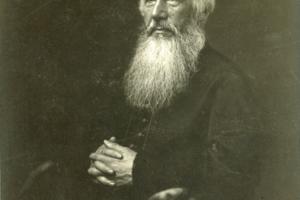Current News
/ArcaMax

Iran steps up enrichment with new site after nuclear censure
Iran said it will inaugurate a new uranium-enrichment facility in response to a decision by the United Nations atomic watchdog to censure the Islamic Republic over its nuclear program, deepening the oil-rich nation’s crisis with the U.S. and Israel.
The new site has been developed at an unspecified, secure location, the Atomic Energy ...Read more

Harvey Weinstein NYC trial judge calls mistrial in accuser Jessica Mann's rape case
NEW YORK — Chaos in the jury room led a judge Thursday to call a mistrial for the one remaining charge against disgraced film mogul Harvey Weinstein, a rape allegation by one-time actress Jessica Mann a day after he was found guilty of sexually assault in his Manhattan retrial.
After an eight-week trial in Manhattan Supreme Court, jurors ...Read more

Campaign wants statewide vote on Michigan minimum wage for tipped workers
LANSING, Michigan — A group in Michigan said it plans to gather petition signatures in the coming months to seek a statewide referendum on a law that scaled back increases in the minimum wage for workers who receive tips.
On Wednesday, the Bureau of Elections announced it will begin seeking public comment on summary language that will ...Read more

City Hall discusses using probation officers to police ICE protests as last resort in NYC
NEW YORK — The Adams administration on Wednesday floated a “doomsday scenario” where probation officers would be called on to don riot gear and back up the police during the mushrooming protests against President Donald Trump’s immigration crackdown, the Daily News has learned.
The officers would be equipped with riot gear and given ...Read more

Massachusetts housing agency prepping executive order targeting 'modular housing'
BOSTON — Gov. Maura Healey’s administration is preparing an executive order that targets modular housing, or homes that are designed and constructed in a factory to be quickly assembled at a desired location, according to an ethics disclosure filed by one of the authors of the order.
The order, which was in draft form as of May 27, would ...Read more
Death threats, vandalism, investigations: LA immigrant rights groups in the fight of their lives
LOS ANGELES — "No firmes nada," a union organizer shouted into a bullhorn as he stood atop the flatbed of a truck outside Ambience Apparel, doling out battlefield legal advice not to sign anything. "You have a right to a lawyer. You are not alone."
Advocates and lawyers had arrived at the downtown store minutes after tips began to pop off at...Read more

105 South Koreans sue former president for 'emotional damages'
SEOUL, South Korea — It's been a season of legal woes for former South Korean President Yoon Suk Yeol.
His short-lived declaration of martial law on Dec. 3 first landed him in front of the Constitutional Court — which removed him from office later that month — and then in the Seoul Central District Court, where he is now being tried on ...Read more

Gaza aid foundation says 5 workers killed in Hamas attack
Five Palestinian aid workers were killed and several injured when a bus they were traveling in was attacked by Hamas militants in central Gaza, a foundation backed by the U.S. and Israel said.
The vehicle was en route to an aid-distribution center west of the city of Khan Younis when it came under fire at 10 p.m. local time, according to the ...Read more
Iran steps up enrichment with new site after nuclear censure
Iran said it would establish a new uranium-enrichment center in response to a decision by the United Nations atomic watchdog to censure the Islamic Republic over its nuclear program, deepening a crisis that’s also drawn in the U.S. and Israel.
The new site will be at an unspecified secure location, and will be accompanied by the replacement ...Read more

Trump prevails in the Battle of Confederate Base Names
WASHINGTON — In his first term, one of President Donald Trump’s most embarrassing legislative setbacks centered on the Confederate names of U.S. military bases. This week, Trump used his executive powers to reverse that defeat.
In late 2020 — while he was making false claims of election fraud in a desperate attempt to stay in power — ...Read more

California Congress members to question Hegseth about federal military deployment in LA
LOS ANGELES — California Democrats plan to question Defense Secretary Pete Hegseth on Thursday about the immigration raids that have roiled Los Angeles, the federal commandeering of the state's National Guard and the deployment of Marines in the region when he testifies before the House Armed Services Committee.
Several committee members said...Read more
Bomb blasts, assassination plot plunge Colombia back into terror
A wave of terror attacks across Colombia is stirring fears of regression to the dark days of the 1990s, when cocaine cartels and guerrillas made the Andean nation the most violent on Earth.
Kidnappings for ransom have more than doubled so far this year, killings of members of the armed forces have increased by 195%, and drug-trafficking groups ...Read more

Israel's Netanyahu dodges early election as Iran tensions rise
TEL AVIV, Israel — Prime Minister Benjamin Netanyahu’s government survived an attempt by opposition parties to dissolve parliament early Thursday, as tensions spiked over Iran’s nuclear program.
The bill was voted down 61 to 53 after hours of negotiation during which Netanyahu persuaded some ultra-Orthodox allies to stick with him ...Read more

'Hundreds' had ties to Feeding Our Future nutrition fraud case. Many may not face charges
MINNEAPOLIS — Dozens of people, perhaps hundreds, linked to a sprawling child nutrition fraud case will never face criminal charges. Why? Federal prosecutors don’t have the resources to go after every organization and person that participated in the program.
The case, commonly referred to as Feeding Our Future, the name of a nonprofit at ...Read more

As cannabis users age, health risks appear to grow
Benjamin Han, a geriatrician and addiction medicine specialist at the University of California, San Diego, tells his students a cautionary tale about a 76-year-old patient who, like many older people, struggled with insomnia.
“She had problems falling asleep, and she’d wake up in the middle of the night,” he said. “So her daughter ...Read more

Exhumed Minnesota priest gets new resting place as supporters start push toward sainthood
DULUTH, Minn. – A procession of hundreds of Catholics carried a small casket with the remains of the “Patriarch of the Diocese of Duluth” to a new resting place this week, as church officials prepare to lobby for his inclusion among the saints.
The short procession to the Cathedral of Our Lady of the Rosary was led by priests, deacons and...Read more

'Some cry all day': ICE detainees face harsh conditions in Miami federal facility
MIAMI — Nearly 50 men spent hours in a small holding cell asking for water, food and medication. Instead, officers dressed in riot gear sprayed the room with rubber bullets and launched “flash bang” grenades.
The men had overflowed a toilet in protest, and the ground was covered in putrid water. Smoke filled the air. Loud “booms” rang...Read more

'Everything is uncertain now': Venezuelan travelers blindsided by travel ban
For Venezuelan travelers the past few days have been filled with uncertainty, fear and confusion — not to mention the financial toll.
Since the Trump administration issued a travel ban barring nationals from 12 countries including Venezuela, Venezuelans both in and outside the U.S. have scrambled to reschedule flights — some moved them ...Read more

Carpenter bees can chew through your California home. How to get rid of them
SACRAMENTO, Calif. – Notice giant black bees buzzing around your backyard?
That could spell trouble for your deck or fence, according to David Headrick, Cal Poly professor emeritus of entomology and pest management.
Those enormous insects you’ve spotted are carpenter bees, he said.
Carpenter bees use their powerful jaws to burrow into ...Read more

Planned Parenthood warns last 2 Alaska clinics could close under Republican-backed bill
ANCHORAGE, Alaska — Health care advocates are warning that a bill under consideration by Congress could cause two clinics providing abortions and other reproductive health care services in Alaska to close.
Rose O’Hara-Jolley, Alaska director of Planned Parenthood Alliance Advocates, said that the budget reconciliation bill adopted by the U....Read more
Popular Stories
- As cannabis users age, health risks appear to grow
- 'Hundreds' had ties to Feeding Our Future nutrition fraud case. Many may not face charges
- 'Some cry all day': ICE detainees face harsh conditions in Miami federal facility
- Carpenter bees can chew through your California home. How to get rid of them
- Exhumed Minnesota priest gets new resting place as supporters start push toward sainthood





